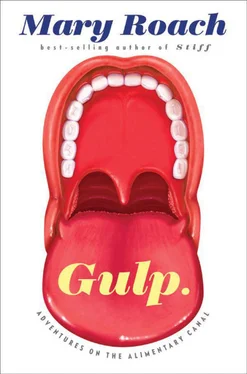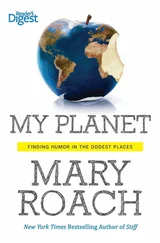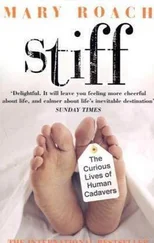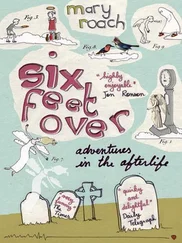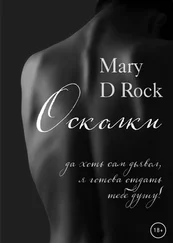• • •
THE FIRST FECAL transplant was performed in 1958, by a surgeon named Ben Eiseman. In the early days of antibiotics, patients frequently developed diarrhea from the massive kill-off of normal bacteria. Eiseman thought it might be helpful to restock the gut with someone else’s normals. “Those were the days when if we had an idea,” says Eiseman, ninety-three and living in Denver at the time I wrote him, “we simply tried it.”
Rarely does medical science come up with a treatment so effective, inexpensive, and free of side effects. As I write this, Khoruts has done forty transplants to treat intractable C. diff infection, with a success rate of 93 percent. In a University of Alberta study published in 2012, 103 out of 124 fecal transplants resulted in immediate improvement. It’s been fifty-five years since Eiseman first pushed the plunger, yet no U.S. insurance company formally recognizes the procedure.
Why? Has the “ick factor” hampered the procedure’s acceptance? Partly, says Khoruts. “There is a natural revulsion. It just doesn’t seem right.” He thinks it has more to do with the process by which a new medical procedure goes from experimental to mainstream. A year after I visited, the major gastroenterology and infectious disease societies invited “a little band of fecal transplant practitioners” to put together a “best practice” paper outlining optimal procedures: a common first step toward establishing codes for billing for the procedure and making the case for insurance companies to cover it. As of mid-2012, there was no billing code or agreed-upon fee. Khoruts estimates the process will take one to two years more. In the meantime, he simply bills for a colonoscopy.
The extent to which health care bureaucracy stands in the way of better patient care is occasionally astounding. It took a year and a half for Khoruts’s study on bacteriotherapy for recurrent C. diff infection to be approved by the University of Minnesota’s Institutional Review Board (IRB)—which oversees the safety of study subjects—even though the board had no substantive criticisms or concerns. The morning I visited to see the transplant, Khoruts showed me an object I wasn’t familiar with, a winged plastic bowl called a toilet hat [122] Or, less often, a nun’s hat, because of the resemblance to the Flying Nun–style wimple. Catholic nurses and hospital patients have from time to time voiced their indignation, and the term has been mostly retired.
that fits over the rim of the bowl to catch the donor’s produce. “That caused about two months of delay on the IRB protocol,” he said. “They sent it back saying, ‘Who’s going to pay for the toilet hats?’ They’re fifty cents apiece.”
Khoruts has also been working on a proposal for a study to evaluate fecal transplants for treating ulcerative colitis. [123] Typing colitis reliably brings “Lucy in the Sky with Diamonds” into my head. In my favorite case of mistaken lyrics, someone heard “The girl with kaleidoscope eyes” as “The girl with colitis goes by.”
Inflammatory bowel diseases—irritable bowel syndrome, ulcerative colitis, Crohn’s disease—are thought to be caused by an inappropriate immune response to normal bacteria; the colon gets caught in the cross fire. This time around, the IRB refused to approve the trial until the FDA had approved it. And that’s just for the trial. Final FDA approval, the kind that makes the procedure available to anyone, is a costly process that can take upward of a decade.
And in the case of fecal transplants, there’s no drug or medical device involved, and thus no pharmaceutical company or device maker with diverticuli deep enough to fund the multiple rounds of controlled clinical trials. If anything, drug companies might be inclined to fight the procedure’s approval. Pharmaceutical companies make money by treating diseases, not by curing them. “There’s billions of dollars at stake,” says Khoruts. “I told Katerina, if this works, don’t be surprised to find me at the bottom of the river.”
We are sitting in Khoruts’s office, in between colonoscopies. Above our heads, on a shelf, is a lurid plastic life-size model of a human rectum afflicted by every imaginable malady: hemorrhoid, fistula, ulcerative colitis, fecaliths. Metaphor for the U.S. health care system?
Khoruts smiles. “Bookend.” A drug company was giving them away at Digestive Disease Week, an annual convention of gastroenterologists and drug reps, with the occasional person dressed as a stomach, handing out samples.
While the bureaucracy inches forward, fecal transplants for C. diff are quietly carried out in hospitals in thirty states. But that leaves twenty where patients have no access. Some have turned to what a researcher in one Clinical Gastroenterology and Hepatology paper called “self-administered home fecal transplantation.” Though seven of seven C. diff sufferers were cured by self- or “family-administered” transplants using a drugstore enema kit, it doesn’t always go well. One woman who recently e-mailed Khoruts for advice didn’t follow directions. She put tap water in the blender, and the chlorine killed the bacteria. Another in-home transplant replaced one source of diarrhea with another: fecal parasites contracted from the donor. Rather than protecting patients, IRBs—with their delays and prodigious paperwork—can put them in harm’s way.
Fecal bacteriotherapy will quickly become more streamlined. More sophisticated filtration will enable the separation of cellular material from ick. The bacteria can then be dosed with cryoprotectant—to prevent ice crystals from puncturing the cells—frozen, and shipped where it’s needed, when it’s needed. Khoruts’s operation is already headed this way.
The Holy Grail would be a simple pill, along the lines of the lactobacillus suppositories used to cure recurrent yeast infection. Generally and unfortunately, aerobic strains that are easy to grow and keep alive in the oxygen environment of a lab are unlikely to be the beneficial ones. Though researchers don’t know exactly which bacteria are the desirables, they do know they’re likely to be anaerobic species that thrive only within the colon. You want the creatures that are dependent on a healthy you for their own survival, the ones whose evolutionary mission is aligned with your own—your microscopic partners in health.
I asked Khoruts what exactly is in the “probiotic” products seen in stores now. “Marketing,” he replied. Microbiologist Gregor Reid, director of the Canadian Research & Development Centre for Probiotics, seconds the sentiment. With one exception, the bacteria (if they even exist) in probiotics are aerobic; culturing, processing, and shipping bacteria in an oxygen-free environment is complicated and costly. Ninety-five percent of these products, Reid told me, “have never been tested in a human and should not be called probiotic.”
IPREDICT THAT ONE way or another, within a decade, everyone will know someone who’s benefited from a dose of someone else’s body products. I recently received an e-mail from a doctor in Texas, telling me the story of Lloyd Storr, a Lubbock physician who treated chronic ear infections via homemade “earwax transfusions”: drops of donor earwax boiled up in glycerin. Earwax maintains an acid environment that discourages bacterial overgrowth and possibly contains some antibacterial chemicals. Whatever it does, some people’s works better than others’. Khoruts has been encouraging a friend of his, a periodontist, to try bacterial transplantation [124] Kissing is a less aggressive form of bacterial transplant. Studies of three different gingivitis-causing bacteria have documented migration from spouse to spouse. Periodontically speaking, an affair might be viewed as a form of bacteriotherapy.
as a treatment for gum disease.
Читать дальше
